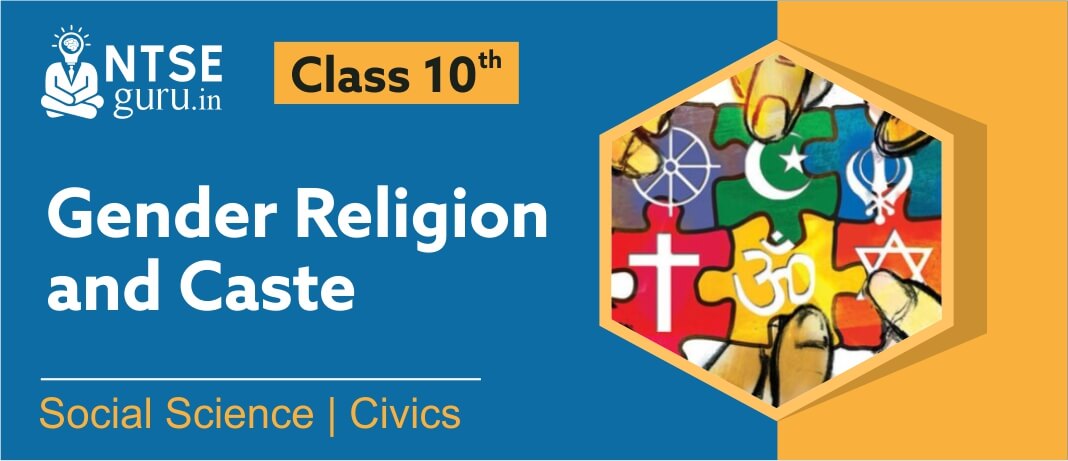Chemical Reactions And Equations Class 10
X Board exams play a very important life in building the foundation of a student’s dynamic career and it is very imp...


1. Define the following terms
(i) Sexual division of labour (ii) Feminist
(iii) Patriarchy (iv) Family laws
(v) Urbanization (vi) Occupational mobility
(vii) Caste hierarchy
Ans. (i) Sexual division of labour- A system in which all work inside the home is either done by the women of the family, or organized by them through the domestic helpers.
(ii) Feminist- A woman or a man who believes in equal rights and opportunities for women and men.
(iii) Patriarchy- Literally, ruled by father, this concept is used to refer to a system that values men more and gives them power over women.
(iv) Family laws- Those laws that deal with family related matters such as marriage, divorce, adoption, inheritance, etc. In our country, different family laws apply to followers of different religions.
(v) Urbanization- Shift of population from rural areas to urban areas.
(vi) Occupational mobility- Shift from one occupation to another, usually when a new a generation takes up occupations other than those practiced by their ancestors.
(vii) Caste hierarchy - A ladder like formation in which all the caste groups are placed from the ‘highest’ to the ‘lowest’ castes.
2. Write a short note on the Feminist movements?
Ans. Women in different parts of the world organized and agitated for equal rights. There were agitations in different countries for the extension of voting rights to women. These agitations demanded enhancing the political and legal status of women and improving their educational and career opportunities. More radical women’s movements aimed at equality in personal and family life. These movements are called Feminist movements.
3. What are the various forms of communalism in India?
Ans. Communalism in daily beliefs – These routinely practices involve religious prejudices, stereotypes of religious communities and belief in the superiority of one’s religion over other religions. This is so common that we often fail to notice it, even when we believe in it.
Formation of Political parties based on religious communities- A communal mind often leads to a quest for political dominance of one’s own religious community. For those belonging to majority community, this takes the form of majoritarian dominance. For those belonging to the minority community, it can take the form of a desire to form a separate political unit.
Political mobilization on religious lines- It is another frequent form of communalism. This involves the use of sacred symbols, religious leaders, emotional appeal and procedure in order to bring the followers of one religion together in political arena. In electoral politics this often involves special appeal to the interests or emotions of voters of one religion in preference to others.
Communal Riots- Sometimes communalism takes its most ugly form of communal violence, riots and massacre. India and Pakistan suffered some of the worst communal riots at the time of the Partition. The post- Independence period has also seen large scale of communal violence.
4. What are the features of communal politics?
Ans. Communal Politics is based on the idea that religion is the principal basis of social community.
Communalism involves thinking along the following lines:- The followers of a particular religion must belong to one community. Their fundamental interests are same. Any difference that may happen is irrelevant or trivial for community life. It also involves that people who follow different religion cannot belong to same social community. In its extreme form, communalism leads to the belief that people belonging to different religions cannot live as equal citizens within one nation. Either one has to dominate the rest or they have to form different nation.
5. What are the features of the caste system?
Ans. Hereditary occupation division was sanctioned by rituals. Members of same caste were supposed to form a social community that practiced the same or similar occupation, married within the same caste groups and did not eat with members from other caste groups. Caste system was based on exclusion of and discrimination against the ‘outcaste’ groups. These were subjected to the inhuman practice of untouchability.
Chemical Reactions And Equations Class 10
X Board exams play a very important life in building the foundation of a student’s dynamic career and it is very imp...
Board exams for class X are around the corner and now it's high time to revise all the important concepts and related ...